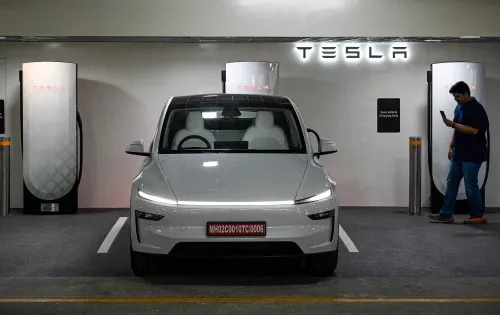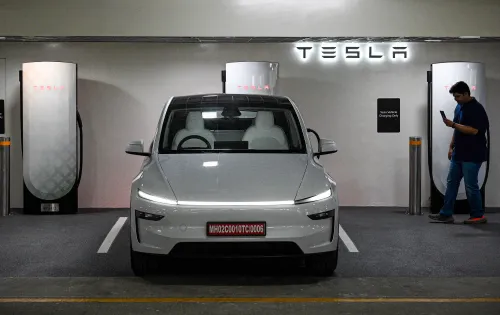Sensex Jumps Over 1,200 Points, Driven by Auto and IT Stocks

Mumbai, Jan 2 (NationPress) The Indian stock market witnessed a significant rise of nearly 1.6 percent in the afternoon session on Thursday, propelled by strong purchasing activity in the auto, energy, private banking, infrastructure, commodity, and IT sectors on Nifty.
At approximately 1:39 PM, the Sensex was recorded at 79,766.88, reflecting an increase of 1,259.47 points or 1.60 percent, while the Nifty stood at 24,112.25, up by 369.35 points or 1.56 percent.
The market sentiment remained optimistic. On the National Stock Exchange (NSE), 1,366 stocks were in the green, compared to 529 stocks in the red.
The Nifty Bank index rose by 386.45 points or 0.76 percent to reach 51,447.05. Additionally, the Nifty Midcap 100 index traded at 57,740.40, gaining 289.50 points or 0.50 percent. The Nifty Smallcap 100 index was at 19,022.65, up by 62.85 points or 0.33 percent.
Within the Sensex constituents, notable gainers included Bajaj Finserv, Bajaj Finance, Maruti Suzuki, M&M, Infosys, Titan, UltraTech Cement, HCLTech, Kotak Mahindra Bank, and IndusInd Bank. Conversely, Sun Pharma was the only major loser.
The domestic benchmark indices opened relatively flat in the morning session as selling pressure was observed in the PSU banking, pharmaceutical, FMCG, real estate, media, energy, and metal sectors on Nifty.
According to Vaibhav Agrawal, CIO–Alternates (Public equity) at MOAMC, broader markets are projected to achieve earnings growth of 12-13 percent in FY26.
While foreign institutional investor (FII) flows remain unpredictable, a rebound in corporate earnings during H2 FY25 and anticipated easing of geopolitical tensions following Trump's
However, generating profits in 2025 will not be as straightforward or widespread as in the previous four years.
“It will become increasingly stock and sector-specific. In this context, sectors and companies with exposure to discretionary consumption, energy transition, electronics manufacturing, and capital markets are likely to perform better,” Agrawal added.










